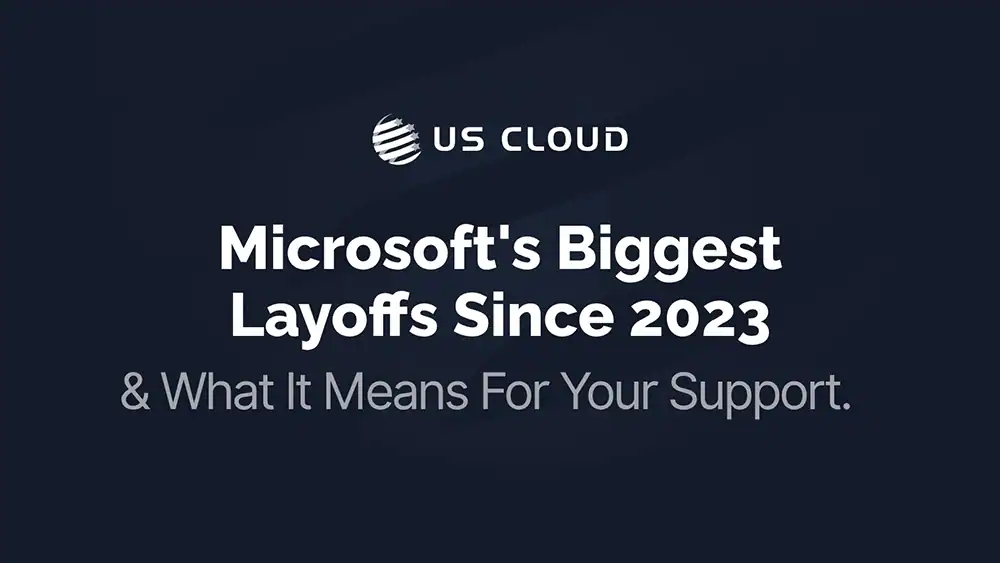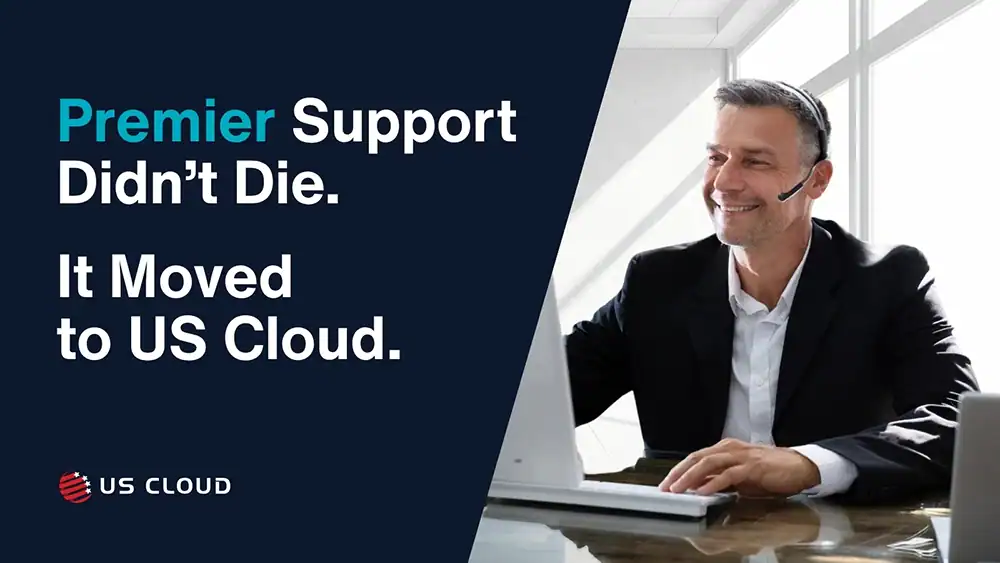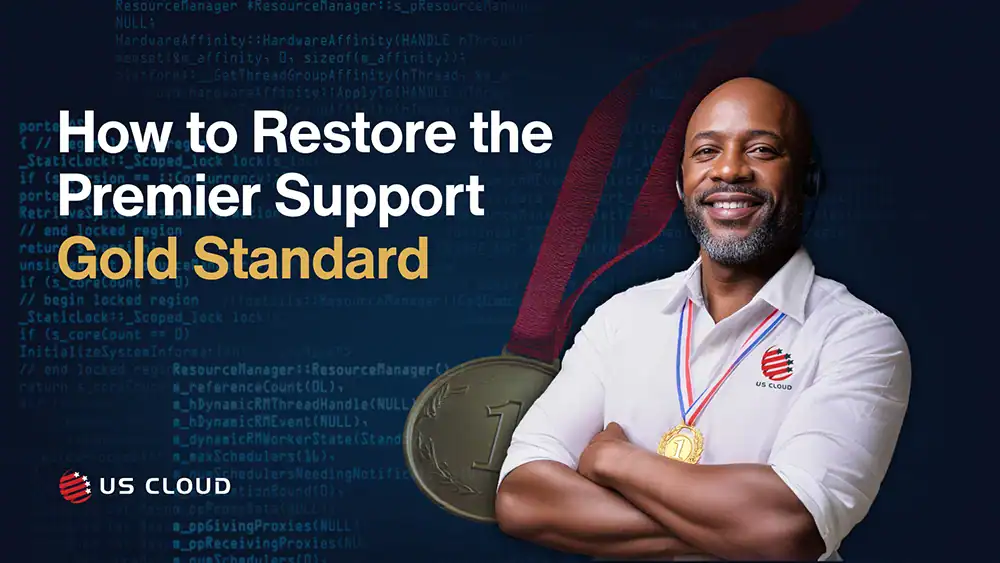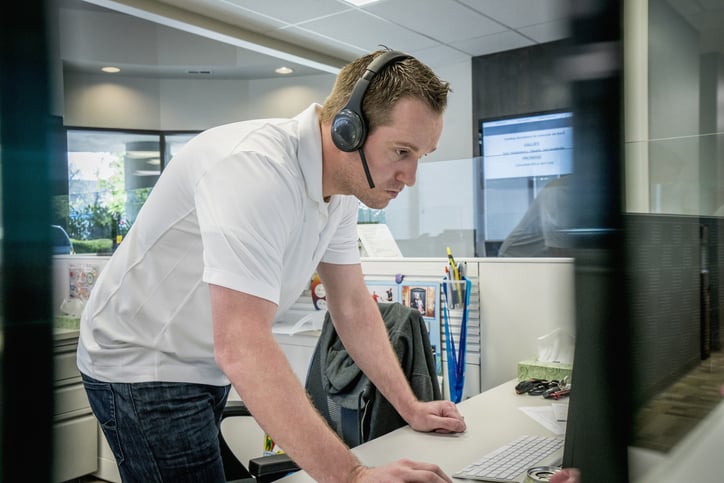
Top Ten V-Dash Support Responses: How Outsourced IT Support Affects Microsoft Customers.
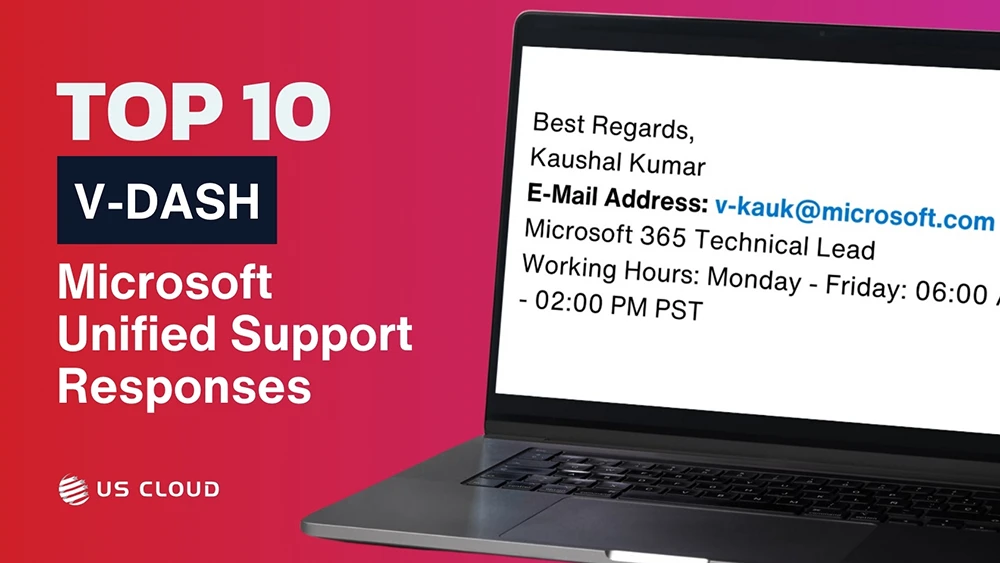
Almost nothing matches the level of exasperation resulting from 27 minutes of back-and-forth on the phone call with a dubious connection, other agents helping other frantic customers in the background, and still no actionable solution has been solidified. What can make matters worse is when you and your support professional are both speaking the same language but there are things happening during the call which feel about as clear and modern as TV static.
We’ve all been there. Although wonderful experts can be found all over the world, sometimes outsourced IT support for Microsoft Support clients can create a dreary reality for customers. In the Microsoft Unified world, these external contractors are occasionally referred to as “V-dash” support.
Before your next Microsoft Unified Support ticket runs through V-dash support, review what it means to receive support from a Microsoft external contractor and how you know if you’re being spoken to by a V-dash support expert. Then, see how US Cloud can make a world of a difference to your team’s Microsoft issue resolutions.
What Does “V-Dash” Mean in Microsoft Support?

It is no secret that not all Microsoft Support is conducted in the United States. Common knowledge indicates that Microsoft employs overseas contractors to help Microsoft Premier Support and Microsoft Unified Support address the needs of as many customers as possible.
Internally, overseas contractors are assigned an email address that begins with a “v-” to indicate their position outside of the United States. So, therefore, if you are receiving technical Microsoft support from someone with an email that starts with a “v-,” then you know that this person is operating under the Microsoft umbrella as an external contractor.
This category of support is often referred to as “V-dash” support. When a Microsoft issue has been handled by a v-dash contractor, it has not been handled in-house at Microsoft.
Why Support Location Changes Customer Service
When it comes to communicating deeply technical matters, clear communication is key. Language barriers (or, at the very least, obstacles) can complicate this crucial communication, making solutions tough to discover. That’s not to say that there aren’t Microsoft experts around the world. It just that, if vocal communication is all you’ve got to explain your needs, then any hinderance to linguistic success is not helpful.
Long-distance support can also inhibit personal connections, as well. Although most people aren’t trying to use Microsoft support to find their next best friend, personal connections are crucial for reinforcing trust between the client and the engineer. Mutual connection could be prevented by realities that include a cultural disconnect or robotic scripted responses.

If the support professional on the other end of the line is from another time zone, Microsoft Support clients may experience longer wait times due to differing operational hours. Naturally, waiting longer for a solution can put some stress on an enterprise if operations have been stalled by a Microsoft issue.
Finally, customers requesting support through a contracted overseas expert often experience difficulty in resolving complex problems. In other words, if your team already has an intricate (yet high stakes) Microsoft issue that takes a certain amount of effort to explain in person, the time to clearly express that need is generally elongated if there is still a lack of connection between the client and the expert.
Tiered Support at Microsoft

As more and more tickets have been handled by overseas support contractors (“v-” support), more experienced U.S.-based support has been transferred to other sectors of the company, Accordingly, an increased number of enterprise-level Microsoft Support clients have been experiencing support frustrations that are more common to the support contractor experience.
Microsoft Expertise Limitations
Microsoft products, including Windows, Office, and Azure, are typically implemented in very specific and technical ways in larger companies. Outsourced support may lack the depth of specialized knowledge necessary to efficiently troubleshoot complicated issues. Teams with advanced needs may be met with frustratingly generic or surface-level solutions that don’t actually solve problems that need to be solved.
International Data Security Concerns
For teams that handle sensitive information for their companies, overseas support may force users to navigate security concerns. If they are bound by data protection protocols or laws, caretakers of business-critical systems may have to evaluate how their information is being handled by teams working from other countries.
Stalled Escalation Processes
If a client issue requires help from a higher-level Microsoft Support technician, the process for escalating that concern to the appropriate expert can be slow. As Microsoft Support customers await a solution from the next support technician, they may become trapped in a seemingly endless cycle of transfers and wait times.
Slow Ticket Queue Prioritization
Since Microsoft Support helps businesses around the world keep their Microsoft products running, overseas contractors handle an extremely high volume of calls. This can often mean longer wait times as a client’s ticket slowly creeps up the queue to be addressed.
Lack of Ticket Ownership
Due to this high volume of Microsoft Support need, constant issue escalation between outsourced contractors, and generic problem-solving, many clients may feel as though overseas professionals don’t have enough skin in the game to really own the ticket and see it through to a satisfactory resolution. Without a perceived personal stake in solving a client’s issue, it’s easy to see how Microsoft Support customers may feel like their concerns are going unheard.
Direct Microsoft Support that Doesn’t Feel Direct

Clients of Microsoft Unified Support whose tickets are handled through V-dash services may feel that they are not receiving the level of support they were expecting from the company who created the products they are relying on. Especially when the technician’s prescribed solutions feel miles off course, this “direct” support may not actually feel like “direct Microsoft support.”
Top Ten Responses from V-Dash Support
We all know that there’s a certain flavor and pace to support from an expert who belongs to another culture. While one can appreciate that there are professionals around the world who can offer technical support in an entirely different language, there are some undeniable catchphrases and one-liners we have all heard from support experts who hail from outside the United States. These are some of the most common ones we’ve heard:
- Do the needful.
- Please again, upload the logs.
- To make sure I understand you correctly…
- Kindly, sir…
- This is known.
- Let me bring in my colleague.
- Did you redeem the 5 stars?
- Kindly mark this reply as answer.
- Did you redeem the 5 stars? (Again)
- Did you redeem the 5 stars? (Once more)
Honorable mentions:
- Do one thing…
- Please revert as soon as possible.
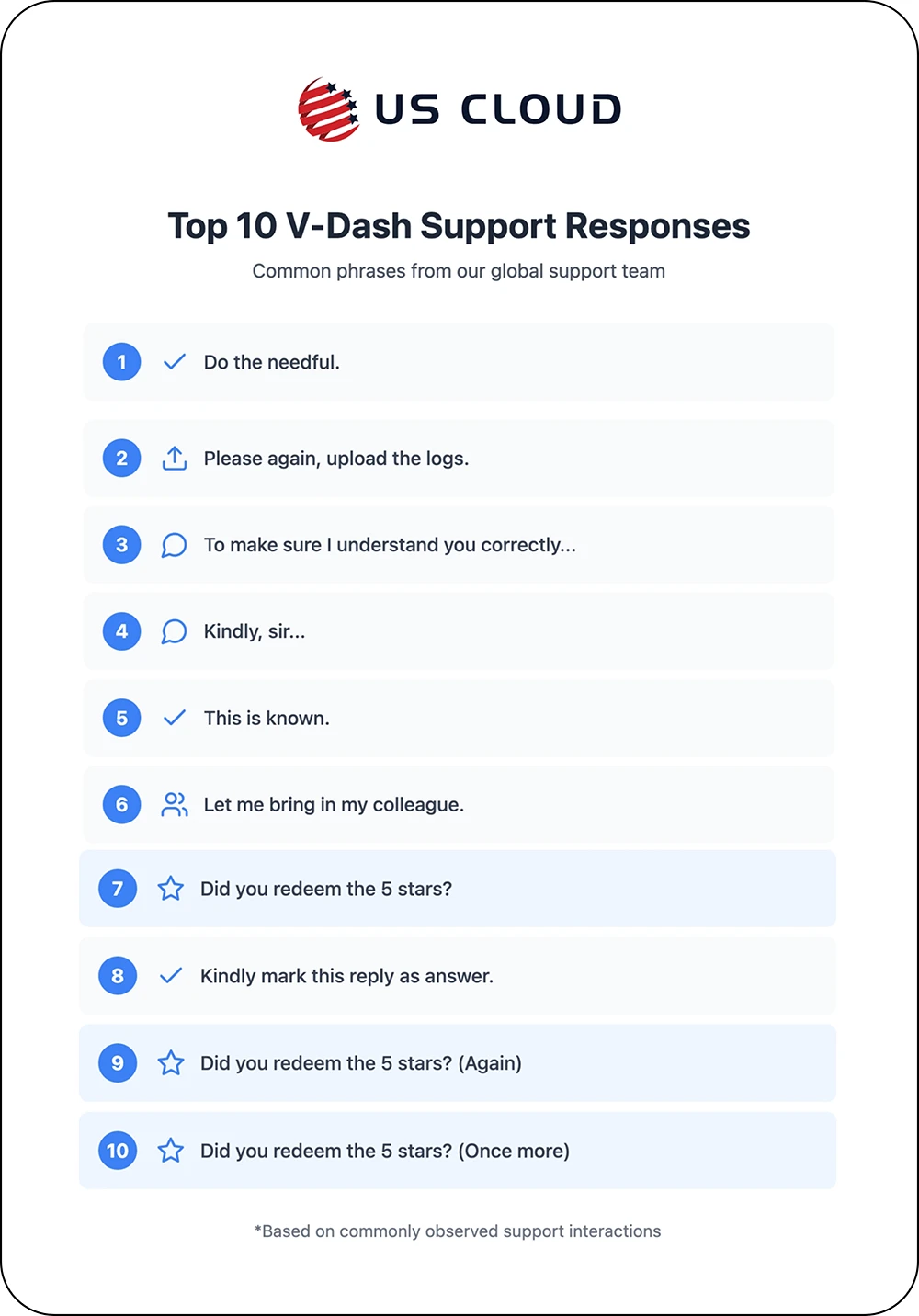
While you may be chuckling and nodding along as you read this list, these linguistic markers sometimes contribute to a disconnect between the support provider and the client. Additionally, these vocabulary differences also have the potential to generate something that’s possibly even worse: a full-on misunderstanding.
A disconnect is one thing, but a misunderstanding of instructions or next steps may cause unnecessary mistakes which can further complicate a Microsoft issue. When needless mistakes make the resolution process longer, that means more wasted support hours for your team. Ultimately, that adds up to wasted money that could have been allocated to something more beneficial for the company.
The US Cloud Difference: America-Based Microsoft Support

If you’re ready to explore Microsoft support options based in the United States, it’s time to start evaluating your options for third-party services. As an alternative to V-dash support for Microsoft Unified, third-party solutions at US Cloud provide expertise that’s closer to home—often for a fraction of the cost of direct Microsoft support.
Third-Party Does Not Mean International
At US Cloud, our Microsoft experts operate from within the United States. Domestic support engineers ensure that your Microsoft issue is fully understood and your concerns are heard.
Tailored Solutions for 30-50% Less than Microsoft Unified
Your Microsoft solutions can be both swift and tailored to your business, IT infrastructure, and team needs and still cost significantly less than Microsoft Unified. That’s the bottom line: more customized support for less money.
Expert Long-Term Collaboration
Your technical account manager (TAM) will not rush through your ticket armed with a generic script. Our experts are trained to investigate your Microsoft incident using targeted inquiries and best practices. Then your TAM will ensure that your Microsoft support ticket is fully resolved before it is closed.
Seamless Proactive Care for Microsoft Products
Your designated support engineer can be integrated into your IT infrastructure to lookout for potential security risks or system issues. When problems are spotted ahead of time, your valuable support hours can be conserved and used as efficiently as possible.
24/7 Data Security-Compliant Support
US Cloud engineers are available around the clock to ensure that our customers in all time zones working at any hour of the day can access secure and rapid ticket resolution for Microsoft issues. This global 24/7 support is built to ensure that international enterprises can maintain their competitiveness in an increasingly fast-paced worldwide market.
Microsoft’s Outsourced IT Support (V-Dash) FAQs
Does Microsoft outsource tech support?
Yes. It is no secret that Microsoft employs contractors in many countries to help them respond to as many support calls as possible. These contractors are sometimes referred to as “V-dash” support.
Does outsourcing affect the quality of direct Microsoft support?
Outsourced support can color support relationships with communication barriers, inconsistent technical expertise, and scripted responses that may not adequately address complex technical issues. This combination of conditions potentially reduces problem-resolution efficiency and client satisfaction.
What primary concerns do Microsoft clients often have with offshore support teams?
Clients typically worry about language barriers, time zone differences, varying technical skill levels, data privacy risks, and the lack of deep understanding of specific enterprise technology environments that require nuanced troubleshooting.
Does outsourced IT Microsoft support pose a data security compliance risk for customers?
Potentially, depending on the data security protocols of the customer when it comes to the transmission across international boundaries. The use of offshore support contractors may also increase potential security vulnerabilities due to less rigorous data handling protocols.
